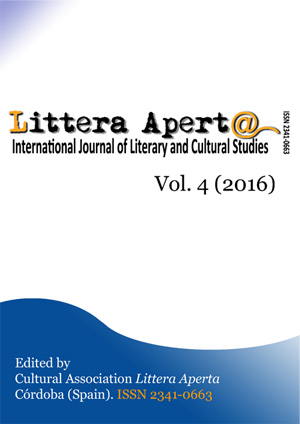Liberando a Vuyazi: oralidad y subjetividad femenina en la ficción de Paulina Chiziane
Contenido principal del artículo
Resumen
Las historias orales mantienen a menudo las estructuras sociales, a través de la enseñanza de normas culturales. Al incorporar historias orales en su obra escrita, Chiziane sitúa a los mayores como recursos de la aldea, como pilares y centro de un mundo fragmentado en el que las cosas han empezado a cambiar. Como sedes de la memoria, las mujeres mayores aportan un equilibrio cuando la comunidad necesita afrontar la modernidad. Sin embargo, al tiempo que Chiziane deconstruye los cuentos orales, subvierte igualmente la lengua colonial. En este trabajo examino cómo la autora recurre a una estética feminista y africanista, a través de cuentos, mitos y proverbios orales, frecuentemente transmitidos por mujeres mayores, para reinventar la lengua portuguesa, al tiempo que subvierte los mitos y leyendas que refuerzan las jerarquías de género.
Descargas
Los datos de descargas todavía no están disponibles.
Detalles del artículo
Sección
Artículos
Authors who publish with Littera Aperta agree to the following terms:
- Authors retain copyright and grant the journal right of first publication with the work simultaneously licensed under a Creative Commons Attribution 4.0 International License that allows others to share the work with an acknowledgement of the work's authorship and initial publication in this journal.
- Authors are able to enter into separate, additional contractual arrangements for the non-exclusive distribution of the journal's published version of the work (e.g., post it to an institutional repository or publish it in a book), with an acknowledgement of its initial publication in this journal.
- Authors are permitted and encouraged to post their work online (e.g., in institutional repositories or on their website) prior to and during the submission process, as it can lead to productive exchanges, as well as earlier and greater citation of published work (see The Effect of Open Access).
